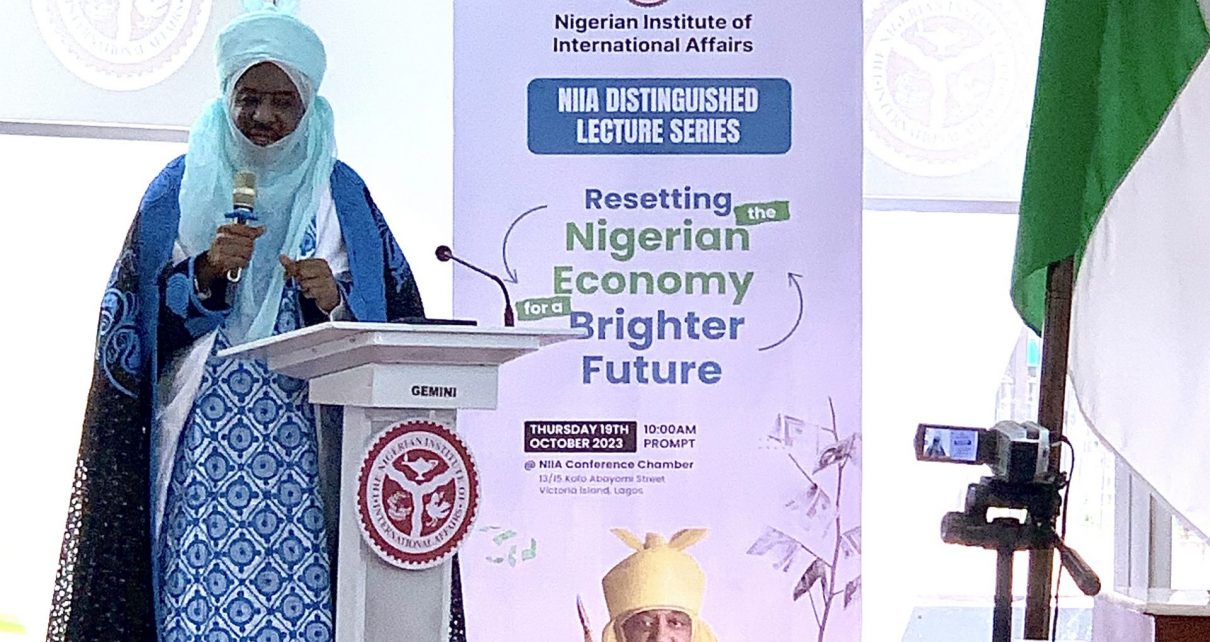Sanusi Lamido Sanusi, the 14th Emir of Kano and former Governor of the Central Bank of Nigeria (CBN), expressed his view on the long-term solution to the petrol subsidy removal crisis, saying, “The long-term solution is to reduce dependence on PMS.” He added, “In the short term, the most effective measure to offset the removal of fuel subsidies is cash transfers.”
Sanusi made these remarks during the Distinguished Lecture Series of the Nigerian Institute of International Affairs (NIIA) in Lagos, which revolved around the theme, “Resetting the Nigerian Economy for a Brighter Future.” He stressed the need for Nigerians to appreciate the economy’s importance and emphasised the significance of bringing economics into public discourse. Sanusi also underlined the dominance of politics in economic matters, stating, “An economy is run on the basis of the ideological orientation of those who control the state.”
While discussing the economic issues facing Nigeria, he highlighted the challenge of multiple exchange rates and the reluctance of politicians to heed economists’ advice, noting, “I think every economist knows that multiple exchange rates are a problem, but as long as politicians are able to give themselves a dollar at 400 Naira and sell at 700 Naira, they are not ready to listen to the economists.”
Sanusi pointed out that concerns about fuel subsidies have been discussed by Nigerians since 2011, and he suggested that civil society share responsibility for the country’s current economic situation. In terms of the economy’s governance, he stressed the need for change, saying, “The country cannot continue doing the same thing and expect a different outcome.” He acknowledged Nigeria’s substantial revenue problem and recommended raising revenue while also improving the country’s image to attract investments.
Sanusi concluded by stating, “Oil is not enough to make us rich but enough to put us in trouble. Nigeria will never get rich from producing oil. At best, it represents working capital that can enable the launch of other industries.” Despite the challenges faced by the country, he remained optimistic and affirmed Nigeria’s role as a giant in surmounting obstacles.


